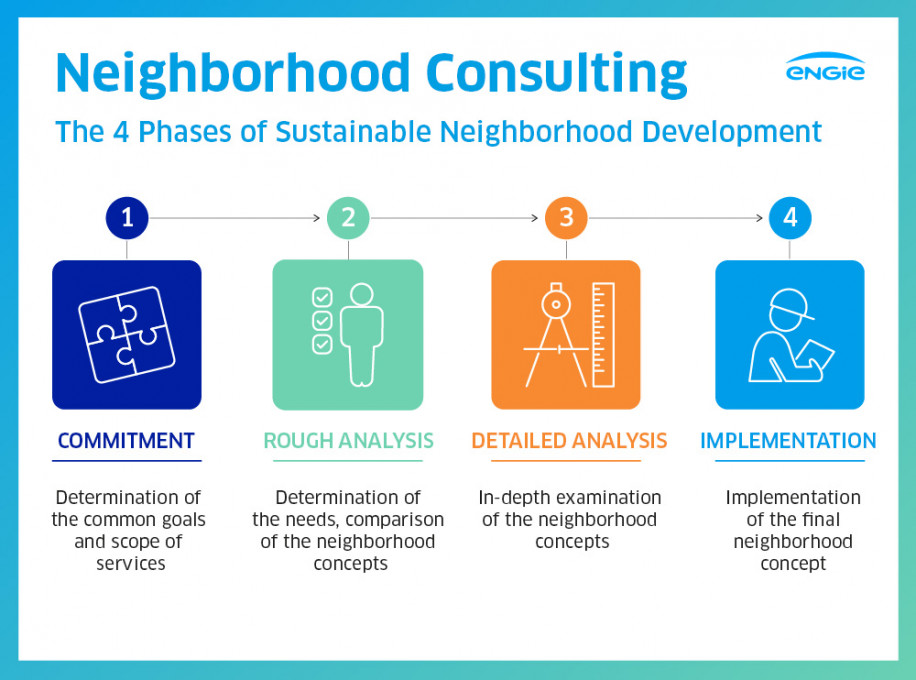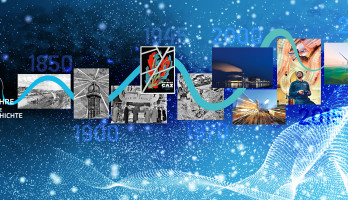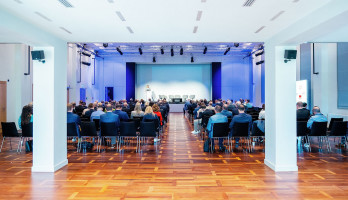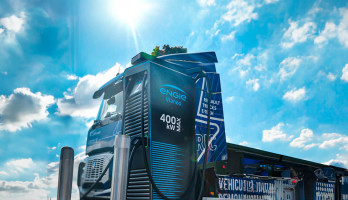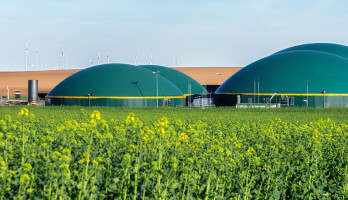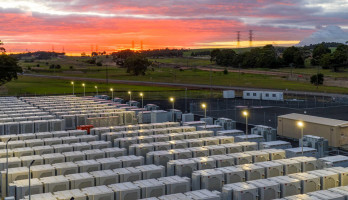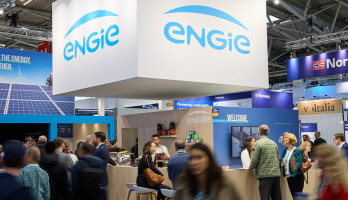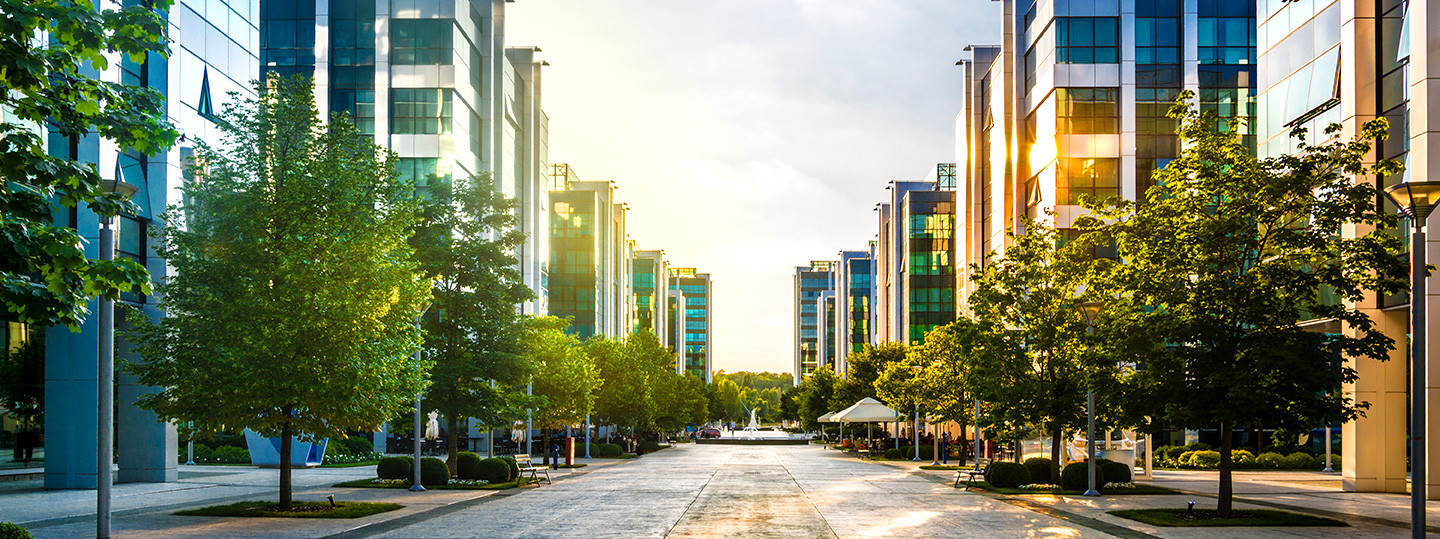
Green neighborhoods: neighborhood consulting for energy efficiency and more climate protection
In this article, we introduce you to an important service for project developers, urban planners and property developers: neighborhood consulting. Learn more about the process and how we support real estate companies to meet the current challenges in the energy sector.
Sustainable neighborhood development - a rocky road to climate-friendly pathways?
Decarbonization around real estate is a major challenge - and also an important driver for the energy transition. The building sector accounts for more than a third of German energy consumption. In addition, it accounts for 30 percent of CO2 emissions in Germany. It is therefore clear that neighborhoods must move away from fossil electricity and fossil heat. But there are still many problems. In existing buildings in particular, there is a lack of clever approaches and practical conversion concepts. But intelligent solutions for energy supply are also needed in new buildings.
The challenges of sustainable neighborhood development
Making neighborhoods climate-friendly and energy-efficient requires a lot of know-how. This is expertise that project developers, urban planners and property developers often do not have themselves. What's more, knowledge alone is not enough. Practical experience is essential if office, residential or commercial space is to be retrofitted sustainably and redesigned in an environmentally friendly way. Neighborhoods require their own technical concepts. Every neighborhood is different and has its own structural characteristics. These include architectural conditions, individual utilization concepts and, last but not least, economic framework conditions.
Manfred Schmitz, CEO of ENGIE Germany, knows that thoughtful planning is necessary for change. Sustainable neighborhood management can only succeed with a holistic approach. According to Schmitz, this approach must take into account the entire life cycle of the building and combine the highest standards of economic efficiency, technology and climate protection.
There are two pieces of good news: First, numerous technologies for sustainable neighborhood management are already available today. On the other hand, energy experts like ENGIE provide intelligent strategies that combine the aspects of economic efficiency, technology and climate protection. The approach: a holistic view of the neighborhood and the development of a customized energy supply solution. We support project and construction managers in this regard with a comprehensive service model - neighborhood consulting.
Neighborhood consulting: How we support real estate companies with their climate goals
We have been dealing with sustainable neighborhood development throughout Germany for years and know: For successful, sustainable neighborhood development, it is necessary to approach the energy concept, the infrastructure planning, the operational concept, the mobility concept, and the supply and disposal concept of the neighborhood together. As a sparring partner for numerous urban planners and developers, we successfully accompany the energy turnaround in neighborhoods. Together with the responsible parties, we plan energetically clever and economical neighborhood solutions for existing buildings as well as new construction projects.
From sustainable idea to implementation: how neighborhood consulting works
Our services for real estate planners and operators are multifaceted. Basically, we work in four phases that build on each other:
Phase 1: Commitment
During the first phase, we clarify how we can contribute to the success of neighborhood projects. Participants in neighborhood consulting get to know our team personally and we decide together which concrete goals we want to achieve. This can include, for example, energy-efficient refurbishment of existing buildings or technical support for new-build neighborhoods.
Phase 2: Rough analysis
In the following, we find out the general planning conditions and take a close look at the neighborhood. In doing so, we determine the key energy figures and the energy requirements. We also clarify which technologies are suitable for the location. We provide our customers with a clearly structured decision matrix that compares possible district concepts.
Phase 3: Detailed analysis
We examine up to three selected concepts in detail for our customers. In doing so, we take a close look at the draft planning and the plant design. We also prepare a transparent cost analysis for construction and ongoing operation. We also advise our customers on possible subsidy programs and provide an overview of worthwhile options.
Phase 4: Implementation
Once our customers have decided on a concrete concept, the implementation phase begins. We support them not only as strategic planners, but also with technical tasks. ENGIE's experienced technicians take over the installation and setup of plants and, if required, take care of their operation in the long term.
How sustainable neighborhood development succeeds with ENGIE
Project developers, urban planners and property developers are not on their own when it comes to the energy transition. And before budgets are spent on concepts that are not technically mature, strategic energy consulting should be consulted. With our district consulting, we provide a strong service that makes demand-oriented, sustainable district development possible. You can find out more about meaningful reference projects here: our references in the real estate sector.
